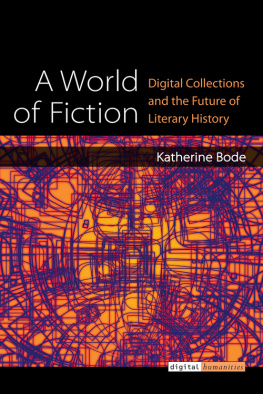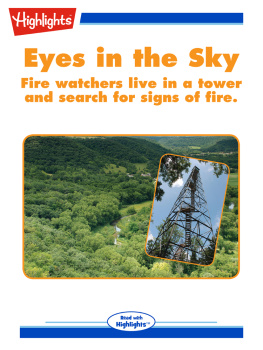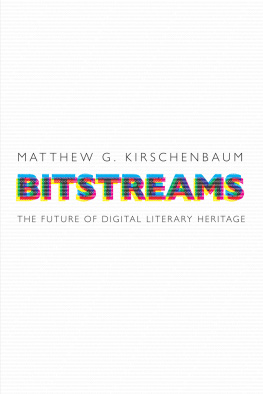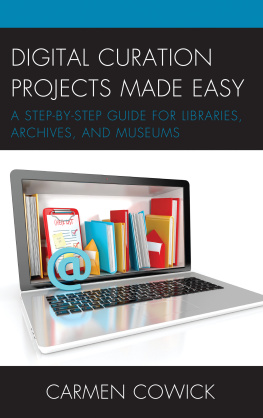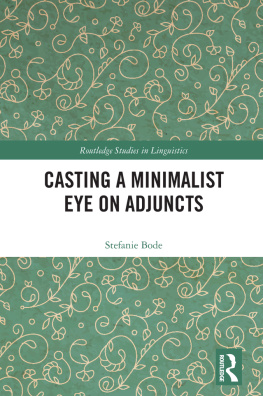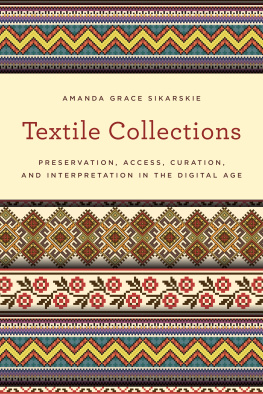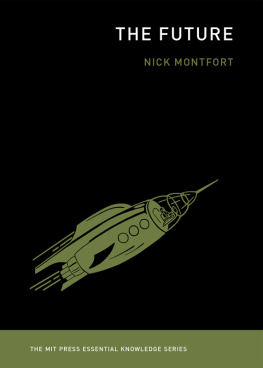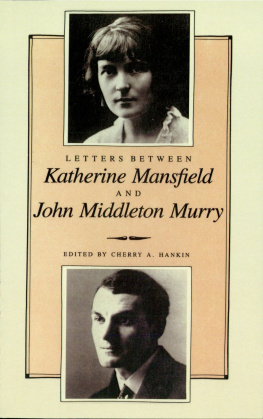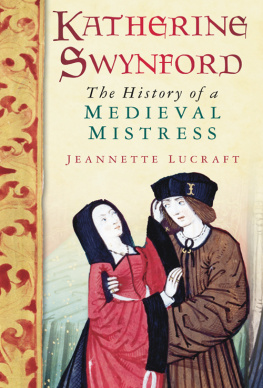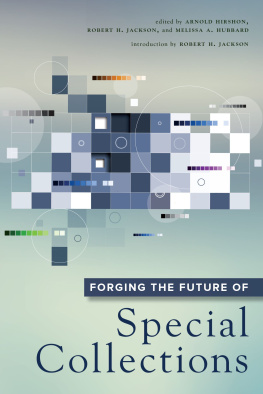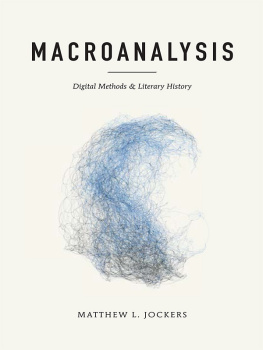Katherine Bode - A World of Fiction: Digital Collections and the Future of Literary History
Here you can read online Katherine Bode - A World of Fiction: Digital Collections and the Future of Literary History full text of the book (entire story) in english for free. Download pdf and epub, get meaning, cover and reviews about this ebook. year: 2018, publisher: The University of Michigan Press, genre: Romance novel. Description of the work, (preface) as well as reviews are available. Best literature library LitArk.com created for fans of good reading and offers a wide selection of genres:
Romance novel
Science fiction
Adventure
Detective
Science
History
Home and family
Prose
Art
Politics
Computer
Non-fiction
Religion
Business
Children
Humor
Choose a favorite category and find really read worthwhile books. Enjoy immersion in the world of imagination, feel the emotions of the characters or learn something new for yourself, make an fascinating discovery.
- Book:A World of Fiction: Digital Collections and the Future of Literary History
- Author:
- Publisher:The University of Michigan Press
- Genre:
- Year:2018
- Rating:3 / 5
- Favourites:Add to favourites
- Your mark:
- 60
- 1
- 2
- 3
- 4
- 5
A World of Fiction: Digital Collections and the Future of Literary History: summary, description and annotation
We offer to read an annotation, description, summary or preface (depends on what the author of the book "A World of Fiction: Digital Collections and the Future of Literary History" wrote himself). If you haven't found the necessary information about the book — write in the comments, we will try to find it.
Katherine Bode: author's other books
Who wrote A World of Fiction: Digital Collections and the Future of Literary History? Find out the surname, the name of the author of the book and a list of all author's works by series.
A World of Fiction: Digital Collections and the Future of Literary History — read online for free the complete book (whole text) full work
Below is the text of the book, divided by pages. System saving the place of the last page read, allows you to conveniently read the book "A World of Fiction: Digital Collections and the Future of Literary History" online for free, without having to search again every time where you left off. Put a bookmark, and you can go to the page where you finished reading at any time.
Font size:
Interval:
Bookmark:
 Page i
Page i 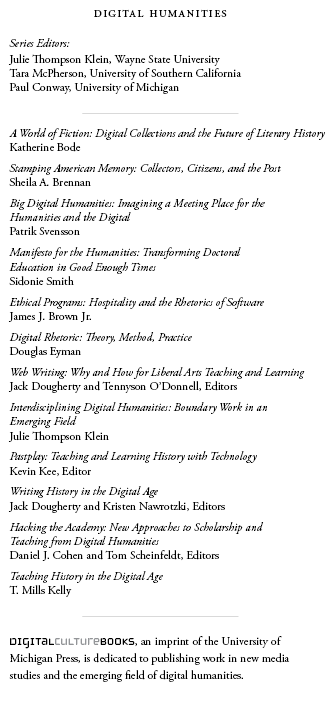 Page iii
Page iii Katherine Bode
University of Michigan Press
Ann Arbor
Page ivCopyright 2018 by Katherine Bode
Some rights reserved

This work is licensed under the Creative Commons Attribution-Noncommercial-No Derivative Works 3.0 United States License. Note to users: A Creative Commons license is only valid when it is applied by the person or entity that holds rights to the licensed work. Works may contain components (e.g., photographs, illustrations, or quotations) to which the rights holder in the work cannot apply the license. It is ultimately your responsibility to independently evaluate the copyright status of any work or component part of a work you use, in light of your intended use. To view a copy of this license, visit http://creativecommons.org/licenses/by-nc-nd/3.0/ or send a letter to Creative Commons, 171 Second Street, Suite 300, San Francisco, California, 94105, USA.
Published in the United States of America by the
University of Michigan Press
Manufactured in the United States of America
A CIP catalog record for this book is available from the British Library.
Library of Congress Cataloging-in-Publication data has been applied for.
ISBN 978-0-472-13085-6 (hardcover : alk. paper)
ISBN 978-0-472-12392-6 (e-book)
ISBN 978-0-472-90083-1 (Open Access ebook edition)
Digital materials related to this title can be found on
www.fulcrum.org at doi.org/10.3998/mpub.8784777
The ideas in this book benefited enormously from the advice and feedback of generous colleagues, especially Robert Dixon, Paul Eggert, Julieanne Lamond, Glenn Roe, Kate Mitchell, Shawna Ross, and Ted Underwood. Leigh Dale deserves special thanks: as has been the case since I was a graduate student, for this book she has been my most dedicated and encouraging reader. I would also like to acknowledge Elizabeth Morrison, who was a generous reader of parts of the book and an inspiration to me while writing it. In the late 1980s, Elizabeth imagined the possibilities of an index of fiction in Australian newspapers and proposed it be held in a computer database. In building that database and exploring that fiction I have tried to emulate the nuance and scholarly rigor of Elizabeths work, as well as its ambitious scope.
This book would not have been possible without a Discovery Grant from the Australian Research Council. That funding enabled me to hire bibliographer Carol Hetherington. This was surely the single greatest contributor to the success of the project. I approached Carol asking for advice about whom I might hire as a research assistant; when Carol suggested herself for the job I gained a colleague and friend to share the project with. Junran Lei, development officer in the Centre for Digital Humanities Research at the Australian National University, gave invaluable technical assistance to the project. Work on this book Page viii was also supported by research travel funding from the Australian National University and by a Bicentennial Fellowship from the Menzies Centre at Kings College London. While I was at Kings Mark Turner kindly introduced me to a group of periodical scholars, including Laurel Brake, James Mussell, Matthew Philpotts, and Matthew Rubery. My conversations with these scholars were instrumental in shaping the books arguments.
Chapter 1 is closely based on an article published in Modern Language Quarterly in 2017, which also outlines ideas I develop in chapter 2. A version of the first part of chapter 4 was published in Book History in 2016, and much of an earlier version of chapter 5 appeared in Victorian Periodicals Review in 2017. I thank the editors of these journals, particularly Marshall Brown and Alexis Easley, as well as the anonymous reviewers, for helping me to develop this work.
Finally, I want to thank my family. As always, my parents and sisters provided enormous support and encouragement. I also benefited a great deal from conversations with my mathematician brother, Michael Bode, about digital methods, and from his practical assistance with creating the decision trees used in chapter 6. My husband, Ben, and I had two children during the writing of this bookElsa and Felixand it is dedicated to them, and to Ben, whose understanding and support, and actual sharing of the fatigues of the nursery (#21693/IV), made this book possible.
Page 1Questions and Opportunities for Twenty-First-Century Literary History
This book began with a question and an opportunity. These arose, respectively, from conditions of the nineteenth century and of the twenty-first. In Australia in the nineteenth century, in contrast to the much more diversified literary markets of Britain and America, newspapers were the main local publishers as well as the major sources of fiction: local and imported. Literary historians knew muchthough as this book shows, much less than we thoughtabout the Australian fiction published in this context. But very little was known about the fiction from elsewhere that appeared in these newspapers, even as it was estimated to comprise around 80 percent of all titles (Morrison, Serial 315). In asking what fiction was published in nineteenth-century Australian newspapers I wanted to know where it came from, who wrote it, when it was published, and how it got there. By association, I sought to understand the transnational conditions in which local authors wrote and were read and by which an Australian literary culture developed.
In the twenty-first century, the National Library of Australias (NLA) Trove database represents the largest mass-digitized collection of historical newspapers internationally. This was my opportunity: Trove made it possible, for the first time, to explore nineteenth-century Australian newspaper fiction in a systematic and extensive way. I devised a paratextual method, outlined in chapter 3, that uses formal features of Page 2 these digitized newspapers to automatically identify and harvest fiction. On this basis, I discovered over 16,500 works, a massively expanded record of nineteenth-century Australian literary culture and its connections with the international circulation of fiction in this period.
The titles I uncovered came from across the globefrom Britain and America as well as Austria, Canada, France, Germany, Holland, Hungary, Italy, Japan, New Zealand, Russia, South Africa, and Sweden. I found established international authors in Australian newspapers much earlier than had previously been realized, including multiple titles by Charles Dickens published prior to the mid-1850s, Wilkie Collins, Arthur Conan Doyle, Robert Louis Stevenson, Ellen Wood, and many others. Alongside these international writers were a host of new Australian works and authors, with notable findings, including previously unlisted fiction by Catherine Martin and Jessie Mabel Waterhouse; a new Australian author, John Silvester Nottage, responsible for multiple full-length novels; and new titles by Captain Lacie and Ivan Dexter, in addition to the discovery that both were well-developed pseudonyms for James Joseph Wright, who thereby emerges as one of, if not the most, prolific of Australias early authors.
Font size:
Interval:
Bookmark:
Similar books «A World of Fiction: Digital Collections and the Future of Literary History»
Look at similar books to A World of Fiction: Digital Collections and the Future of Literary History. We have selected literature similar in name and meaning in the hope of providing readers with more options to find new, interesting, not yet read works.
Discussion, reviews of the book A World of Fiction: Digital Collections and the Future of Literary History and just readers' own opinions. Leave your comments, write what you think about the work, its meaning or the main characters. Specify what exactly you liked and what you didn't like, and why you think so.

